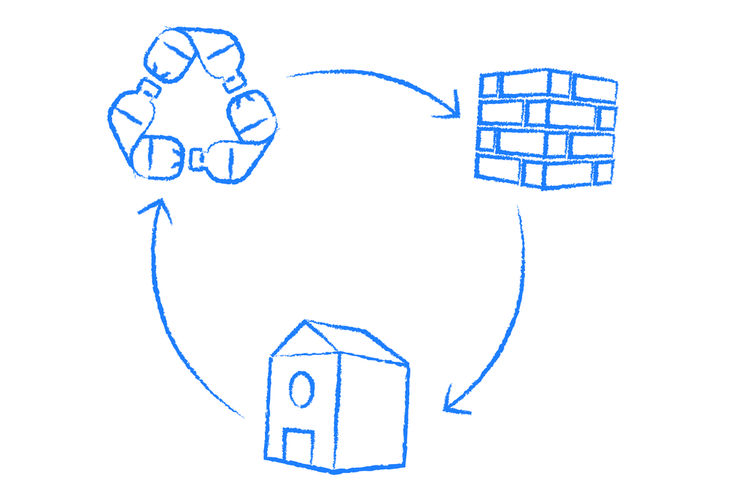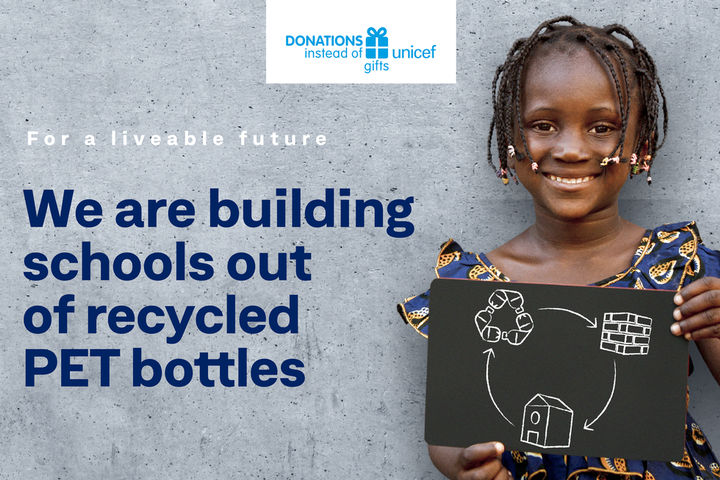UNICEF is building schools from recycled plastic bricks: education and environmental protection united
In the Ivory Coast, 1.6 million children have no access to education, and the region suffers from extreme environmental pollution. UNICEF has found an innovative solution for addressing these challenges: building schools from recycled plastic bricks.
Education, plastic recycling and liveable buildings

Plastic waste is used to manufacture bricks for school buildings. This creates liveable buildings and new educational opportunities for children.
In the Ivory Coast, around 1.6 million children have no access to education. At the same time, the region suffers from extreme environmental pollution, in particular due to plastic waste. These two challenges have devastating impacts on society and on the environment. To tackle this problem, UNICEF has initiated a remarkable project to create future prospects for children in the Ivory Coast – one we are proud to support. After all, we are committed to creating liveable buildings.
Innovative solution from UNICEF

Construction of a school using plastic bricks in Yopougon, a suburb of Abidjan, in the south of Côte d'Ivoire. © UNICEF/UNI360067/Diarassouba

Children in the playground of their school in Sakassou, which was built from recycled plastic bricks. © UNICEF/UN0616769/Dejongh
UNICEF has developed an innovative approach to address these problems at the same time. They are building schools using recycled plastic bricks. This approach has multiple positive impacts:
- Environmental protection through recycling: tons of plastic waste are recycled and invested in building schools, significantly reducing environmental pollution.
- Economic benefits for families: The recycling program allows mother to work in the recycling market as well, thereby generating income for their families.
- Educational opportunities for children: The new schools offer educational opportunities to thousands of children previously without access. Well-trained teachers and learning materials promote the development of these children, and expand their prospects for the future.
Together, we can create a sustainable future for all.



